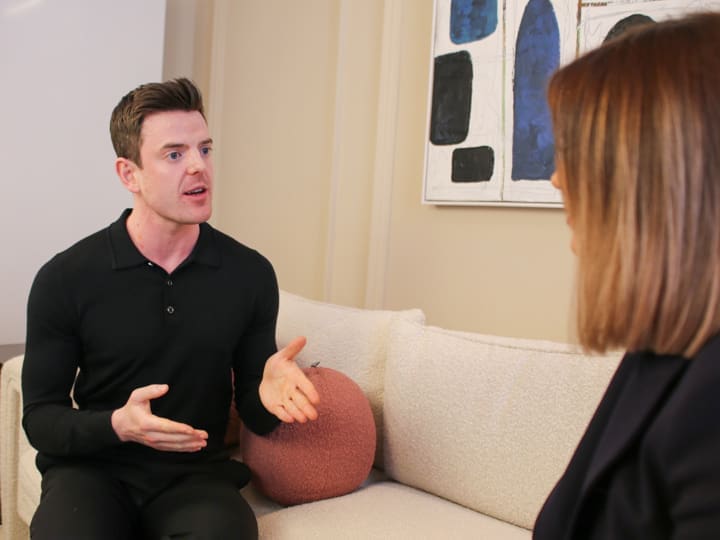McKeown Medical
167 Bath Street, Glasgow, G2 4SQ
Date posted — 24.04.25

Being diagnosed with fibroids can feel overwhelming. You may have noticed changes in your body, such as unusual bleeding, bloating, or pelvic pain, and suddenly you’re facing medical terms and treatment options you don’t fully understand.
At McKeown Medical, we believe in helping you make sense of it all with clear, expert-led information and compassionate care. In this article, we’ll answer some of the most frequently asked questions about fibroids to help you feel more informed and confident about your next steps.
Fibroids (also called uterine fibroids or leiomyomas) are non-cancerous growths that develop in or around the uterus. They vary in size, from as small as a seed to as large as a melon, and can appear as a single growth or in clusters.
Fibroids are incredibly common. It’s estimated that around 2 in 3 women will develop at least one fibroid during their lifetime. They typically affect people in their 30s and 40s, but can occur at any age.
Many fibroids don’t cause any symptoms and are only discovered during routine scans or examinations. However, others can lead to significant discomfort and disruption in daily life.
The symptoms of fibroids depend on their size, number, and location within the uterus. Some of the most common include:
Not everyone with fibroids experiences symptoms, but if you’re noticing any of the above, it’s worth seeking medical advice. At McKeown Medical, our expert team can help you get the answers you need through an initial consultation.
Fibroids don’t cause weight gain directly, but they can lead to abdominal bloating or a noticeable bulge in the lower stomach. This is especially true when fibroids are large or numerous. For some, this change can mimic the appearance of weight gain even if body fat hasn’t increased.
No, fibroids are not cancerous. They are benign tumours, meaning they do not spread to other parts of the body. In extremely rare cases, a cancerous growth called a leiomyosarcoma can develop in the uterus, but this is not thought to arise from a fibroid.
Importantly, having fibroids does not increase your risk of uterine cancer.
If you experience symptoms such as soaking through sanitary products frequently, feeling unusually fatigued, or suffering from shortness of breath during your period, it may be time to consult a healthcare professional. Early intervention can help prevent complications and improve your quality of life.
Still, it’s vital to monitor any changes in your symptoms and undergo regular checkups, especially if you’re postmenopausal or experiencing unusual bleeding.
The exact cause of fibroids isn’t fully understood, but several factors are known to play a role:
Fibroids can grow slowly or rapidly, or they may remain the same size for years.
At McKeown Medical, we offer a range of evidence-based treatments tailored to your symptoms, lifestyle, and personal preferences. These include:
Medication
Minimally invasive surgery
Hysterectomy
We understand that every woman’s situation is unique, which is why we take a personalised approach to treatment planning.
Fibroids are common, but they don’t have to be confusing or debilitating. With the right care, they can be managed or removed effectively, giving you back control over your health and quality of life.
At McKeown Medical, our gynaecology service is led by Dr. Iain Martin, a highly experienced consultant specialising in the diagnosis and treatment of fibroids. Whether you’re newly diagnosed or considering your treatment options, we’re here to help you find the path that’s right for you.
Book a consultation to speak with one of our experts and explore your treatment options today.
Best in the business without a shadow of a doubt. Over 10 years I have been a client, never once had an issue with my treatments. High standards/practice speaks volumes.
Charlene DouganMay 2024

One of Dr Kavita’s breast reduction patients sent this gorgeous bouquet of flowers after her follow up - simply because she felt so grateful for her result and the care our team provided.
Moments like this remind us why we do what we do and why ‘how’ we do it is so important. Surgery has traditionally been a very male-dominated world, but Kavita brings something different - exceptional technical skill combined with empathy, warmth and a genuine understanding of women’s bodies and aesthetics.
There can be a lot of pressure on women in surgery to abandon their femininity to fit in. Kavita hasn’t done that. She’s succeeded by being completely herself.
And that’s exactly why our patients love her (and why we do too).
We’re very proud to have her as part of the McKeown Medical team.

This patient came to the clinic thinking she needed a facelift to get what she wanted. We do facelifts - lots of them. But for this patient, her biggest issue wasn’t loose skin.
It was skin quality, which is something we see a lot of, so we suggested she fix that first. This is the result. Fully ablative resurfacing isn’t easy, but for the right patient, it can be life-changing.
The patient is delighted with her results. What do you think?

Another gorgeous result for another gorgeous patient by the very talented @bramhallplasticsurgery.
This patient is 2 months post-op and loving life with her new eyelids. As well as looking better, she can see better because the weight of the excess skin has been removed. The patient is delighted.
What do you think?

Last week marked a huge milestone for us at McKeown Medical.
Our first full lists of major surgical procedures - something we’ve been carefully building towards for several years - and I couldn’t be prouder of this team.
Led by Dr Kavita, we treated patients for breast augmentation (using both implants and fat transfer), breast reduction, uplift surgery and intimate female procedures, with every case approached thoughtfully, calmly and with meticulous care.
What meant the most to me wasn’t just the surgery itself - it was the experience our patients had.
Thanks to Dr Rob and his modern anaesthetic techniques, patients were comfortable, clear-headed and walking around within an hour of surgery - no nausea, no vomiting, just smooth recoveries.
Our wonderful nursing team cared for everyone before and after, and Lorraine kept the entire day running like clockwork behind the scenes.
Moments like this remind me why we’ve taken our time to grow these services properly. We could have rushed this process, but we’ve taken our time to get it right. I never wanted to simply add surgery to the clinic - I wanted to rethink how patients experience the surgical process.
We’re only just getting started, and I’m incredibly excited about what this means for the patients across Scotland and beyond who choose to trust us with their care.

As all of our patients know, the neck is the one part of the anatomy we always struggle to treat without surgery.
This patient underwent CoolSculpting to reduce some of the excess fatty tissue under her chin, followed by @sofwave.uk to tighten the skin. This is still early days for her, but we can see she is already well on her way to a great result.
When it comes to the neck, combination treatments are usually the answer to the best results.
What do you think?

We have an exciting new addition to the clinic - Visia skin analysis.
We’ve had a growing focus in the clinic on skin quality and skin health over the years with more and more investment in lasers and devices that improve skin quality as the foundation of what we do in aesthetic medicine.
The Visia is a great tool for helping us to analyse the skin and track progress of treatments over time. As well as doing a thorough analysis of all the components of sun damage and skin health, it also gives us an estimate of our ’true age’, which is a reflection of the condition of our skin compared with average for our age.
This is one of my own analysis images. It got my ’true age’ pretty much spot on with my chronological age, which is perhaps surprising given that I spent most of the 90s lying under a sun bed. What was interesting is that I scored really well on superficial pigment and redness, which is consistent with the fact that I love BBL and have a treatment a few times per year. I scored less well on deeper pigment and texture issues, which I guess is consistent with the fact that I’ve not had a Halo laser for nearly 4 years now. So I guess I will be booking another Halo for myself very soon!!!
We`re offering the Visia skin analysis free as part of our laser consultation process. If you`re interested in laser treatment, come in for a consultation with Dr Sharon and you’ll have your analysis done as part of planning your treatment strategy.
You’ll also be scanned again after your course of treatment so we can track your progress.
What do you think of this new addition to the practice?

I am very humbled to share these incredible reviews from our patients.
We are very fortunate to have a team who LOVE their work and will always go the extra mile to ensure our incredible patients are properly taken care of at every step of their journey with us.
We couldn’t do what we do without our incredible (and growing!) team and I am so proud of every one of them.
We have some very exciting developments on the horizon, so keep watching this space!

Laser eye rejuvenation! Thank you to our lovely patient for allowing us to share her photos, just one week after her laser eyelid rejuvenation.
Crepe skin, loose skin, wrinkles are all common signs of ageing around the eye which do not respond well to surgery. The optimal treatment for these problems is laser resurfacing - which is exactly what this patient had.
We’ve been performing these treatments in the clinic for several years, although I’ve recently modified the technique to achieve incredible results with less downtime.
What do you think?

Here’s another fantastic result from our phenomenally talented plastic surgeon, @bramhallplasticsurgery .
As we age, the eyebrows naturally descend which allows excess skin to fall into the upper eyelids. The two main surgical options to address this are a brow lift, an upper eyelid lift (upper blepharoplasty) or both, but for many patients the most appropriate option is also the simplest: to leave the brows exactly where they are and address the excess skin at the eyelids alone.
Upper blepharoplasty is a straightforward procedure with scars hidden in the natural eyelid crease, making them very hard to see once healed. Brow lifts are usually more involved, often require a general anaesthetic, and tend to create a more noticeable change to the face.
The aim with upper eyelid surgery is subtle improvement - looking fresher and more rested, without it being obvious that you’ve had anything done.
This 42-year-old gentleman had a bilateral upper blepharoplasty under local anaesthetic and is shown here six months after surgery.
What do you think?
